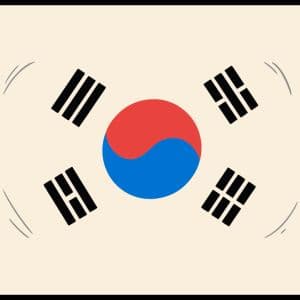Pangyo Techno Valley in Seongnam, often branded South Korea’s answer to Silicon Valley, A major tech district outside Seoul is wrestling with a big label and bigger 0 Techno Valley in Seongnam, often branded South Korea’s answer to Silicon Valley, has grown fast since 2011 and is dense with well-known 1 founders and investors say Pangyo is losing its pull as startups and money move back to Seoul, so the nickname may not 2 south of Seoul, Pangyo is 15 minutes by subway from Gangnam, known for luxury shops, K-pop labels, and 3 call it South Korea’s Silicon 4 in 2011, the 661,000-sq-m campus is now a top innovation hub with 1,800+ startups, labs, and global tech 5 include Naver (Korea’s Google), Kakao (the everything app), game giants Nexon and NCSoft, shipbuilder HD Hyundai, and security firm 6 Electronics has a presence, as do semiconductor giant SK Hynix and Hyundai’s autonomous unit 7 so, many in tech doubt Pangyo really matches Silicon Valley, as reported by Tech Crunch. ‘Most concentrated hub’ but not yet global “Pangyo is absolutely Korea’s most concentrated hub for software, gaming, platforms, and AI,” says Hyoungchul Choi, CEO of Portologics, who founded his company there five years 8 he doubts that the Silicon Valley nickname truly fits.
“The nickname is convenient, but we shouldn’t overstate our global influence.” For talent-hungry startups, location matters . Pangyo’s in Gyeonggi, while support skews to Seoul. Still, insiders say the cluster helps. A Kakao Ventures investor points to pace and culture.
“American startups tend to succeed, and fail, much faster, which fuels constant experimentation and a high rate of talent 9 is a startup’s greatest strength, so I try to have open conversations with founders about how to turn failure into opportunity,” the investor 10 also trips up teams, the investor 11 it will take to go global? “Many Korean founders are sharp on numbers and strategy, but stumble on a simpler question: What’s your story? Business is still about people connecting with 12 a clear, authentic narrative of why you and your team are the right ones, it’s hard to stand 13 because so many already bring strong skills to the table, that personal story becomes even more important,” a respondent \ .
Choi remains 14 local mix of gritty founders and steady big-company influence shapes how teams build. “Unlike in the U. S., where founders often leap into risk and pivot fast, startups here tend to balance ambition with discipline, building proof at home before going abroad.” Even so, he argues, the bar now is global proof, unicorns, cross-border exits, and steady inflows of talent. “What holds Korean startups back from going global?
Three key factors are the home market is small size, weaker global investor ties, and language or regulatory hurdles that create additional 15 through takes more than ambition; it needs early global partners, deliberate go-to-market resources, and leaders who think cross-border from day one,” Choi 16 up to Bybit and start trading with $30,050 in welcome gifts
Story Tags

Latest news and analysis from Cryptopolitan



